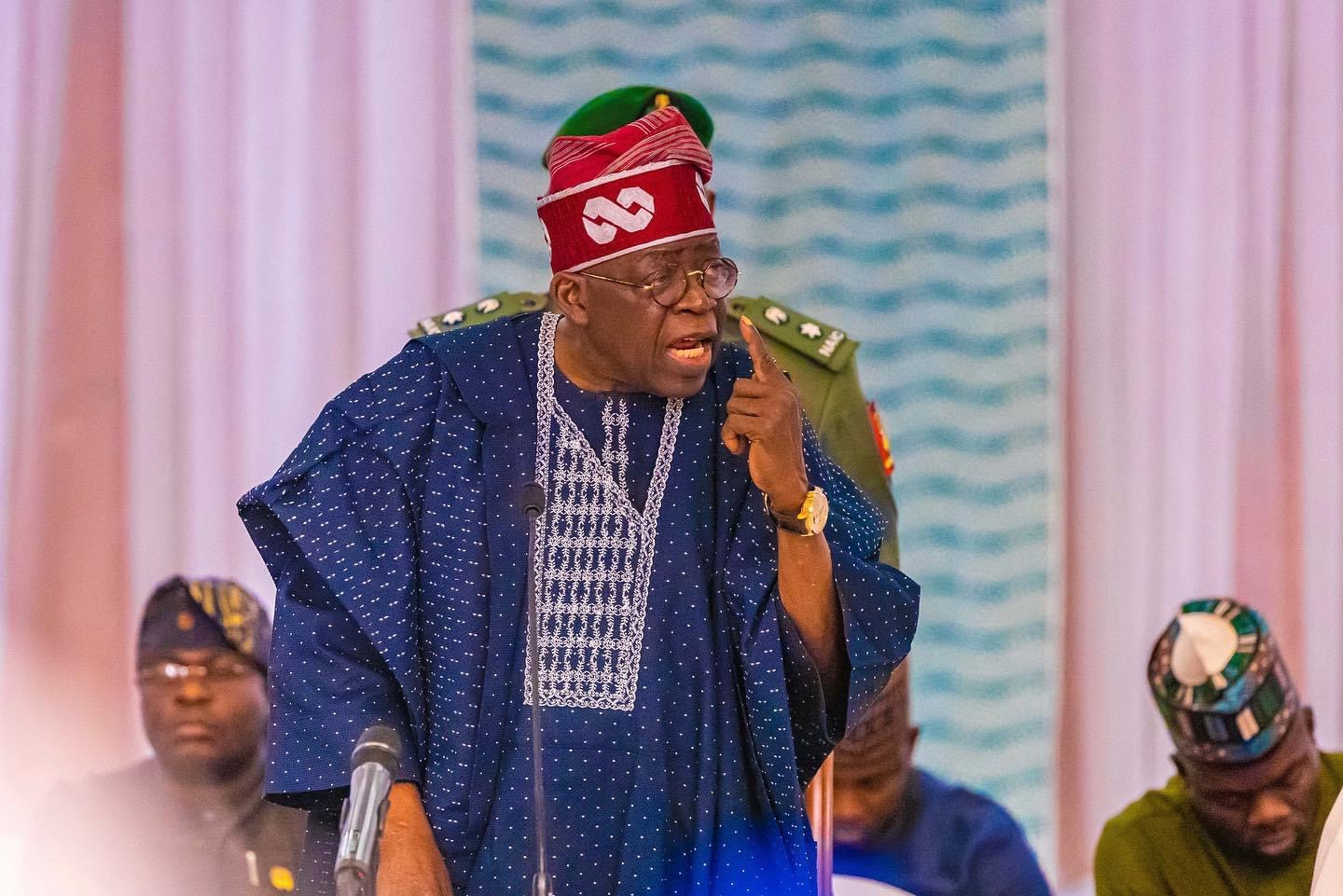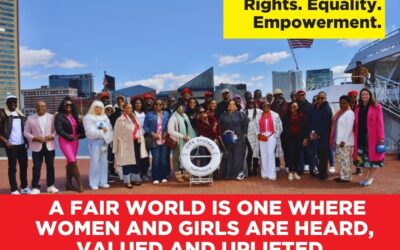After years of policy dilly-dallying and uncertainties, the Nigerian government has decided to do away with the petrol subsidy which several experts agreed was a drain on the economy. This effectively completed the removal of subsidies on petroleum products with that of kerosene and diesel done earlier.
It is instructive to note that former President Muhammadu Buhari, who declared during electioneering in 2015 that “there was nothing like fuel subsidy” and boasted on how two of Nigeria’s refineries were built during his tenure as Petroleum Minister in the 70s as proof that he has the answer to Nigeria’s fuel crisis, made a volte face and failed to remove petrol subsidy as President because of the “social consequences” according to his then Special Adviser on Media and Publicity, Mr Femi Adesina.
The Nigeria Extractive Industries Transparency Initiative (NEITI) in its report in 2021 stated that between 2015 and 2021, the Buhari administration spent N7.83 trillion on petrol subsidy, yet when he summoned the courage to remove fuel subsidy at the twilight of his administration, he could not devise any reasonable measure to cushion the effect other than the $800 million loan from World Bank from which N5,000 is to be distributed to vulnerable Nigerians.
Undoubtedly, the majority of Nigerians have been on the receiving end of the economic effects of petrol subsidy removal. Inflation which the National Bureau for Statistics (NBS) said stood at 22.41 percent in May 2023 is projected to rise further. Transport fares have been hiked across board with dire effects on food inflation which currently stands at 24.82 percent. These grim projections coupled with a low employment rate, which currently stands at 41%, a minimum wage of $68, and 133 million of the population considered multidimensionally poor, indicates that these are indeed harrowing times for the ordinary Nigerian.
The National Association of Seadogs, Pyrates Confraternity (NAS/PC) concedes that it is reprehensible that Nigeria, the biggest producer of oil in Africa, is importing refined petroleum products for local consumption. Through a combination of ineptitude, and corruption enthroned by the political elite, successive administrations in Nigeria have condoned the total collapse of the four refineries in the country paving the way for the importation of petrol to the detriment of the majority of Nigerians.
Recent disclosure by the Executive Secretary of NEITI, Orji Ogbonnaya Orji disclosed that between 2005 and 2021 a whopping N13.697 trillion was spent on fuel subsidies. The NNPC also stated that it spent $15.7billion on petrol subsidy in 2022. Worse still, the House of Representatives Ad-hoc Committee on the State of the Refineries said between 2010 and 2023, a staggering sum of N11 trillion was spent to rehabilitate our refineries with nothing visible to show for it. In climes where service is at the heart of democratic governance these monies, aside transforming the existing refineries, would have built new ones to feed local consumption.
NAS/PC is mindful of the sound economic arguments for the removal of subsidy principally because the administration of President Bola Tinubu inherited an economy in dire straits and appalling macroeconomic indices. We also acknowledge the promises to invest funds previously used for payment of petrol subsidy in building infrastructure and other social amenities. We sympathise with Nigerians who have been agitated and have been plunged into despair over the petrol subsidy removal.
Nonetheless, NAS/PC believes the task before this administration now is to ensure that the petrol subsidy removal and subsequent policies surrounding it addresses the plight of the majority of Nigerians who are poor and have been groaning under the yoke of bad leadership since 1999.
In his address to Nigerians on the anniversary of June 12, President Bola Tinubu had pleaded with Nigerians to “sacrifice a little more for the survival of our country”, we wish to let him know that the vast majority of Nigerians have been making sacrifices since the return to democracy in 1999, and now is the time for the political class to also make adequate sacrifices to salvage what is left of the Nigerian economy and save the country. Democracy is about the people and their welfare and the President Bola Tinubu administration must work to make the petrol subsidy removal count for Nigerians.
NAS/PC therefore makes the following recommendations:
- President Bola Tinubu should lead the political class, especially the executive and legislative arms of government at the Federal and state levels to cut costs in governance. The cost of governance in providing goods and services to the citizens is having a debilitating effect on the economy. Figures compiled by Staista.com, a research and information agency, indicated that the percentage of Nigeria’s GDP spent on running the government rose from 12.82% in 2018 to 14.24% in 2023. Figures obtained from the Ministry of Finance indicated that personnel cost including money spent on the large retinue of aides rose from N2.29 trillion in 2019 to N 4.11 trillion in 2022.
In the 2023 budget of N21.83 trillion which is largely financed from loans, the Federal Government could still budget N9.20 billion for honoraria, N6.75 billion for international training and N6.15 billion for refreshment and meals. In the same budget, the 9th National Assembly increased its own budget from the N169 billion proposed by the Executive to N228.1 billion including N30.1 billion as severance packages. This is clearly outrageous! Similar developments are replicated across the 36 states of the Federation. The President Bola Tinubu administration and the 36 State governors should rethink these lavish spending of government funds if they mean well for Nigerians. Just recently the Speaker of the House of Representatives, Rt Hon Tajudeen Abbas appointed 30 aides, this is uncalled for at a time the government is calling on Nigerians to make sacrifices.
- The President Bola Tinubu administration must be bold to block several leakages in the financial system of the government. Underpinning the trust deficit of citizens in government policies and programmes and its abysmal failure is pervasive corruption. It is not enough to remove petrol subsidy but concerted efforts must be put in place to ensure that monies saved are not stolen again, as it was in the past. Under his predecessor, former President Muhammadu Buhari who rode to office on the wings of an anti-corruption champion, corruption flourished as his administration failed spectacularly to combat it. On Buhari’s watch, Ministries, Departments and Agencies (MDAs) looted funds meant for developmental projects. In 2021, the Independent Corrupt Practices Commission, (ICPC) disclosed that MDAs ‘padded’ the budget to the tune of N300 billion. President Bola Tinubu must demonstrate the political will to tame corruption. The recent arrest of suspended governor of Central Bank of Nigeria Godwin Emefiele and Chairman of Economic and Financial Crimes Commission, Abdulrashed Bawa must not be a flash in the pan. He must go the whole hog to tame corruption.
- President Bola Tinubu must continue with the drastic reforms in the operations of the Nigeria National Petroleum Corporation Limited. While the enactment of the Petroleum Industry Act had seen the national oil company change nomenclature, its operations are anything but transparent. Nigerians need to know all the numbers and transaction details about petrol import and the volume. The opaque system that has been in operation for decades in the NNPC must be dismantled. Nigerians desired to see more reforms in the downstream sector for it to attract the needed foreign investment.
- Closely linked to the drastic reforms in the oil sector is a genuine and holistic rehabilitation of our refineries. The President Bola Tinubu administration must take a definite stand on retaining ownership of the refineries to promote efficiency. The country cannot continue to waste funds to repair refineries that have been designed not to work.
- The argument to increase the minimum wage coupled with increased allowances is appealing for a short time measure but the government needs to come up with a long term measure that would enhance the condition of living of Nigerians. Moreover, Civil servants are only five per cent of the 200 million of Nigerians. The Federal Government and the State governments must devise measures that would cater for all Nigerians.
- It is unfortunate that after several decades of pumping millions of dollars into the energy sector, we are still off the mark in power generation, transmission and distribution. A energy progress report produced by Tracking SD7 in 2022 indicated that 92 million Nigerians have no access to electricity. This is unfortunate. The recent electricity bill signed into law by President Bola Tinubu should spur state governments to invest in the energy sector. Aside from Lagos and Anambra that have shown commitment to raise the power supply in their states, the remaining are lagging behind. A steady power supply is what Nigerians need to accelerate the industrialization of the country and grow the economy. This is where the National Economic Council (NEC) has a priority.
- Also the NEC should ensure a deliberate policy is designed to promote Small and Medium Scale Enterprises (SMEs), create jobs and make Nigeria’s economy more productive. Conscious efforts should be made to promote made in Nigeria goods to make Nigeria self-reliant.
- The plan to implement the Compressed Natural Gas (CNG) programme for vehicles as part of measures to bring down the price of fuel must be sustained.
President Bola Tinubu has a golden opportunity to set the tone of his government with the way he handles the aftermath of the petrol subsidy removal. Nigerians expect the new administration to demonstrate bold, visionary and patriotic leadership in the management of the economy in the weeks and months ahead.
Abiola Owoaje
NAS Capoon
Abuja


![[PRESS RELEASE] AFFIRMATION OF EMERGENCY RULE IN RIVERS STATE THROUGH “AYES AND NAYS”](https://www.nas-int.org/wp-content/uploads/2025/03/National-Assembly-Ayes-and-Nays-400x250.jpeg)

